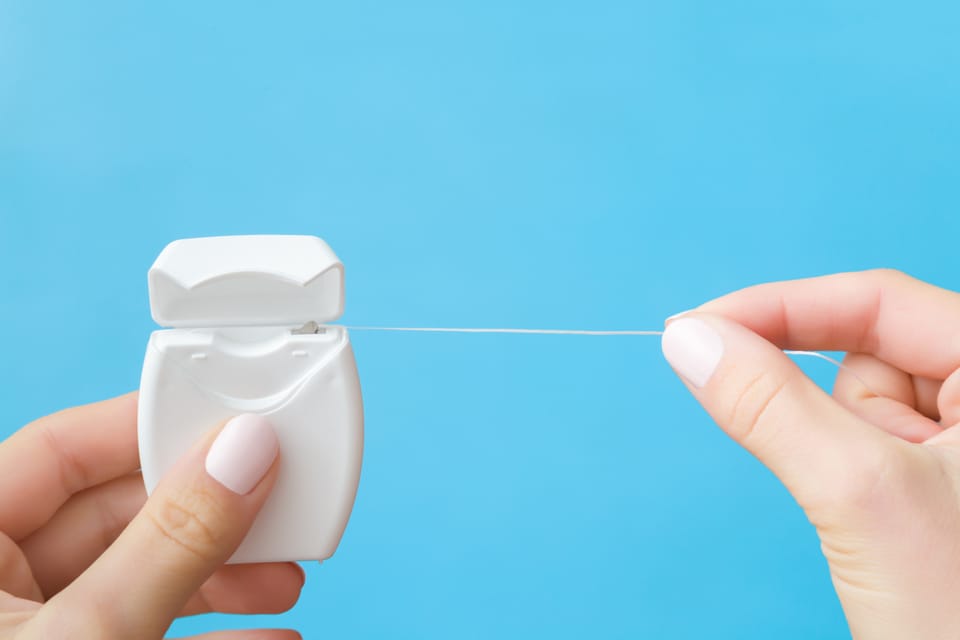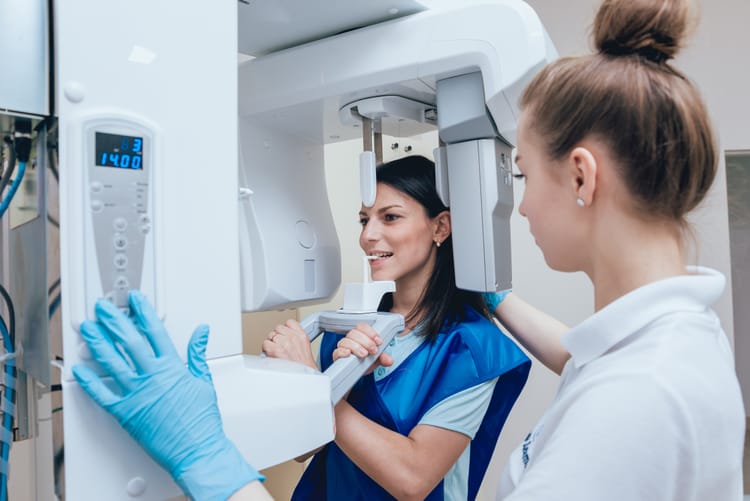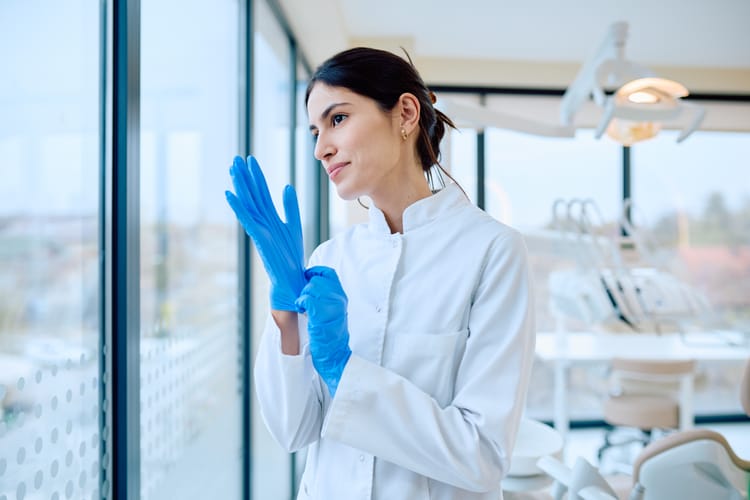Say what? Smart floss can check cortisol levels?

Is smart floss in your patients' future? Researchers developed a new kind of floss that measures stress levels. And of course, that isn't the only new technology we touch on this week. We explore a new AI training series and new AI-powered oral health guidelines. Plus, we talk to a dentist who is working with kids to get them passionate about careers in dentistry.

A dentist and the U.S. Open. Dentist Matt Vogt is headed to the U.S. Open Golf Championship. Vogt worked as a caddy for six years, and now, he is headed to one of the biggest events in golf.
The VA tackles AI in dentistry. The Veterans Health Administration launched a new training series: "Artificial Intelligence in Dentistry." The free series covers four different areas and offers an hour of continuing education credit.
A life-saving dental visit. The University of Minnesota School of Dentistry shared an example of how whole-patient care can save lives. Dr. Ellie Fekrazad discovered a lump in a patient's neck during a routine dental exam and urged him to follow up with his medical providers. He is now cancer-free.
Smart floss? Researchers from Tufts University have developed a new kind of floss to monitor stress. A built-in sensor in the smart floss analyzes cortisol found in saliva.
Sounding the alarm on oral health. Dentists continue to draw attention to lack of access to oral care and fluoride bans. TIME Magazine takes a deep dive into America's dental health.

‘Pathways for youth to become oral health professionals’
The shortage of oral health workers is an ongoing challenge in dentistry. And Planet Smilez is invested in finding a solution. The nonprofit engages with children to educate them about possible dental careers. Last year, Delta Dental awarded Planet Smilez funding through its Oral Health Diversity Fund.
Kathryn Pawlak, DDS, Planet Smilez executive director and founder, sat down with Dental Bite to talk about the nonprofit’s work and ongoing plans to create more pathways to oral health careers. -Carrie Pallardy
How do you see the growing shortage of oral health professionals impacting the industry and patient care today?
So, I'm a pediatric dentist by day, and there is a huge workforce shortage. I graduated [from] dental school and went to residency. I was in the class of Covid. My residency program was in a private practice, community-based care setting. I saw that many hygienists didn't come back to work after Covid happened.
You can see how there's been a strong impact on how it affects patient care. Sometimes patients are having dental emergencies and because they can't access a dental provider and what they say quickly, patients are going to the emergency room for care. So, it's overloading the emergency department.
How is Planet Smilez working to address those workforce gaps?
Planet Smilez is a nonprofit based on oral health education, and our goal is to create pathways for youth to become oral health professionals, from pursuing careers as dental assistants to dental hygienists to dentists. And then, we go into different dental specialties.
We applied for funding through the Delta Dental Institute, and we have been a recipient of the Oral Health Diversity Fund. We're very grateful for the opportunity to do 10 of our immersive programs. We're currently providing programming this year in Massachusetts, New York, New Jersey, Oklahoma and Maryland. We are looking to expand to other cities and states.
Do you have any advice for practicing dentists who want to engage more in education and mentorship with the next generation?
We're always looking for new mentors and educators for our program. If people have interest, they can definitely reach out to us.
Maybe go to your local dental school or local dental society to see what opportunities might be there. Talk to a high school class about why a career as a dentist is a good opportunity.
Continue reading the full interview on our website, dentalbite.co
Responses have been edited for brevity and clarity.

New AI-powered oral health guidelines
The American Dental Association (ADA) and Penn Dental Medicine are collaborating on a set of living oral health guidelines with the help of AI. While traditional guidelines are updated every three to five years, the ADA Living Guideline Program will provide evidence-based updates on a more frequent basis.
Why it matters: More frequent access to new research and evidence could be a powerful tool for improving oral health. (Penn Today)
Dentistry and naturopathy?
Naturopathy focuses on disease prevention and natural therapies. Integrating naturopathy into dentistry could create a more holistic approach to care, naturopathic doctors Ben Hicks, ND, and Laurence Hicks, ND, write for Dentistry IQ. In Idaho, dentists can become licensed naturopaths through a 160-hour training course.
Why it matters: Holistic dentistry is gaining traction, and providers interested in this approach can explore ways to integrate naturopathic principles into their practices. (Dentistry IQ)
How to stress less in dentistry
What is the Blue Dot Effect? It describes the human tendency to look for problems and the negative, even if those issues aren't there. In dentistry, it is easy to feel that stress and always see problems, but you can shift your mindset. In an episode of "The Dentist Money Show," Ryan Isaac, CFP, and Matt Mulcock, CFP, talk about the Blue Dot Effect, how to recognize it and how to manage that stress.
Why it matters: Burnout is common in dentistry. Recognizing negative thought patterns can help dentists create more effective stress management techniques. (Dentist Advisors)

- North American Dental Group announces Emotional Intelligence Award winner
- Delta Dental invests $119M in oral health programs
- A new $10k award for early-stage dentist-scientists
- Society of American Indian Dentists honors legacy of Dr. George Blue Spruce Jr.
Don't be a stranger.
💠 Reply to this email to connect with our team.
💠 Forward Dental Bite to your colleagues.



